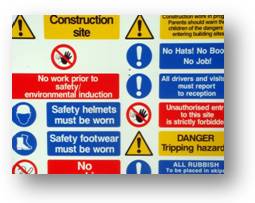The legal environment
 All businesses are subject to national and international laws. In Europe, for example, firms have to be aware of both national legislation and also comply with European Union legislation. In addition, there are aspects of international law that regulate trade and currency exchange (to prevent money laundering), impose contractual obligations and create systems of corporate governance.
All businesses are subject to national and international laws. In Europe, for example, firms have to be aware of both national legislation and also comply with European Union legislation. In addition, there are aspects of international law that regulate trade and currency exchange (to prevent money laundering), impose contractual obligations and create systems of corporate governance.
When looking at this area of the external environment you should be aware of:
(a) The reasons why certain laws have been passed
(b) The impact of the legal environment on business operations.
Let's start off by looking at some areas where governments tend to legislate. This is not an exhaustive list and you should be prepared to research the legal environment for the country where you live, as countries differ significantly in their regulation of business activity.
Health and Safety legislation
Let's look first at Health and Safety. Health and Safety legislation is usually an important part of government regulation. Business is generally responsible for providing a safe working environment, a written safety policy and a recognised training programme for health and safety. Ultimate responsibility for personal health and safety rests with the individual, but the company must provide the environment where both are legally met.
 The European Union (EU), for instance, now issues 'directives' (all EU countries must accept these) on working hours (minimum), the lifting of heavy weights, the use of computer screens and the rights of pregnant women.
The European Union (EU), for instance, now issues 'directives' (all EU countries must accept these) on working hours (minimum), the lifting of heavy weights, the use of computer screens and the rights of pregnant women.
Like all laws imposed by any government they involve costs for those applying them. However, many firms will exceed their legal requirements as they want to be seen as a caring and safety conscious organisation. This approach may, as a result, attract higher quality staff.
Employment law
The law relating to employment can be applicable to the individual or collectively to the company. Laws relating to individual rights cover areas such as:
- Equal pay - the right to equal pay for equal work.
- Sex discrimination - the right to a working environment free from sex discrimination.
- Race discrimination - the right to a working environment free from race discrimination.
- Disability discrimination - the right to a working environment free from discrimination on the grounds of disability.
Laws on discrimination concentrate on terms and conditions of employment and equal opportunities when job vacancies are being advertised. In many countries, for example, it would be illegal to advertise only for a man or a woman for a particular post, unless there are unusual circumstances which demand a person of a certain gender. Similarly, laws in some countries would prevent firms only recruiting people of a particular age.
So how successful have countries been at reducing sex discrimination? The World Economic Forum produces an annual report to assess the current size of the gender gap by measuring the extent to which women in 134 countries have achieved equality with men in five critical areas: economic participation, economic opportunity, political empowerment, educational attainment, and health and well-being. Countries that do not capitalize on the full potential of one half of their societies are misallocating their human resources and undermining their competitive potential. So how did the various countries fare? Follow the link below to see the rankings of the various countries.
Top 20 countries - global gender equality
Employment protection
Employment protection concerns all employees. All employees would like to feel that they have some protection from being unfairly treated. One major concern is that their employment is secure. Employers, however, would like greater flexibility to increase or decrease their staffing levels to meet demand and supply conditions. So how can firms change their human resource level?
Firstly, it is important to understand the difference between dismissal (being 'fired') and redundancy.
Dismissal occurs when the employee has acted in manner, which breaches his or her contract of employment or makes it impossible for that person to remain in the organisation. For instance, any assault in the workplace is likely to lead to instant dismissal. Other reasons for dismissal could include incompetence, or a legal restraint which makes the continuing employment impossible. For example, a person who is found guilty of a drink driving offence and banned from driving could not carry on as a lorry driver.
Dismissal does not normally lead to any claims for compensation, unless that dismissal was unfair. Dismissal can be unfair if the firm has not followed its legal responsibilities, especially in the area of incompetence. Employees are generally entitled to a series of oral and written warnings before dismissal, although the number of warnings will vary from country to country.
Redundancy occurs when the job an individual is carrying out is no longer required. This does not mean that the individual has done anything wrong at all. Under these circumstances, the redundant employee is normally entitled to notice of redundancy and some compensation for the loss of employment.
Collective employment laws differ substantially from country to country, but it is worth you knowing some of the detail in your country to provide examples in an examination question. The areas where investigation would be useful are:
- Dismissal procedures - the formality of written and oral warnings prior to dismissal to which staff are generally entitled.
- Notice of redundancy -the length of notice an individual has to be given. After 4 weeks continual employment an employee is often entitled to 1 week's notice and this will increase by perhaps 1 week for every year employed to a maximum of 12 weeks.
- Contracts of employment - all employees are entitled to receive, within a certain time of commencing employment, an official contract of employment.
- Trade union recognition and involvement. It is a right in most countries of any employee to seek membership of a trades union, but they do not have to belong if they do not wish to.
Consumer protection
This area of the law aims to protect consumers from unfair practices relating to product quality and especially financial terms. Legislation will differ significantly between countries, but may include laws which:
- Dictate how goods should perform in relation to the quality and functions described by the producer (goods should be 'fit for purpose').
- Prescribe how quantities should be accurate (weights and measures etc.).
- Cover accurate and truthful description of goods and services offered for sale.
- Relate to the amount of credit that can be given by recognised credit agents.
- Make companies responsible for damage caused by one of their products.
- Control food display and safety. This is an area of law that changes rapidly.
Competition policy
This area of policy is where government keeps a watchful eye on corporate behaviour. It is concerned about possibly abuses of power by firms. These may include:
- monopoly behaviour
- mergers and takeovers
- restrictive practices.
Research shows that competition leads to greater choice, quality and lower prices and so government is charged with monitoring business to make certain it lives up to these expectations. Governments ensure that anti-competitive (anti-trust) practices are prevented.
It is argued by some economists that modern, global capitalism helps control business and makes them act in the interest of consumers, so should be allowed to self-regulate. They are open to greater competition and so must be able to attract custom by offering quality at affordable prices. However, others believe that self-regulation is inadequate to prevent business taking advantage of their power.
